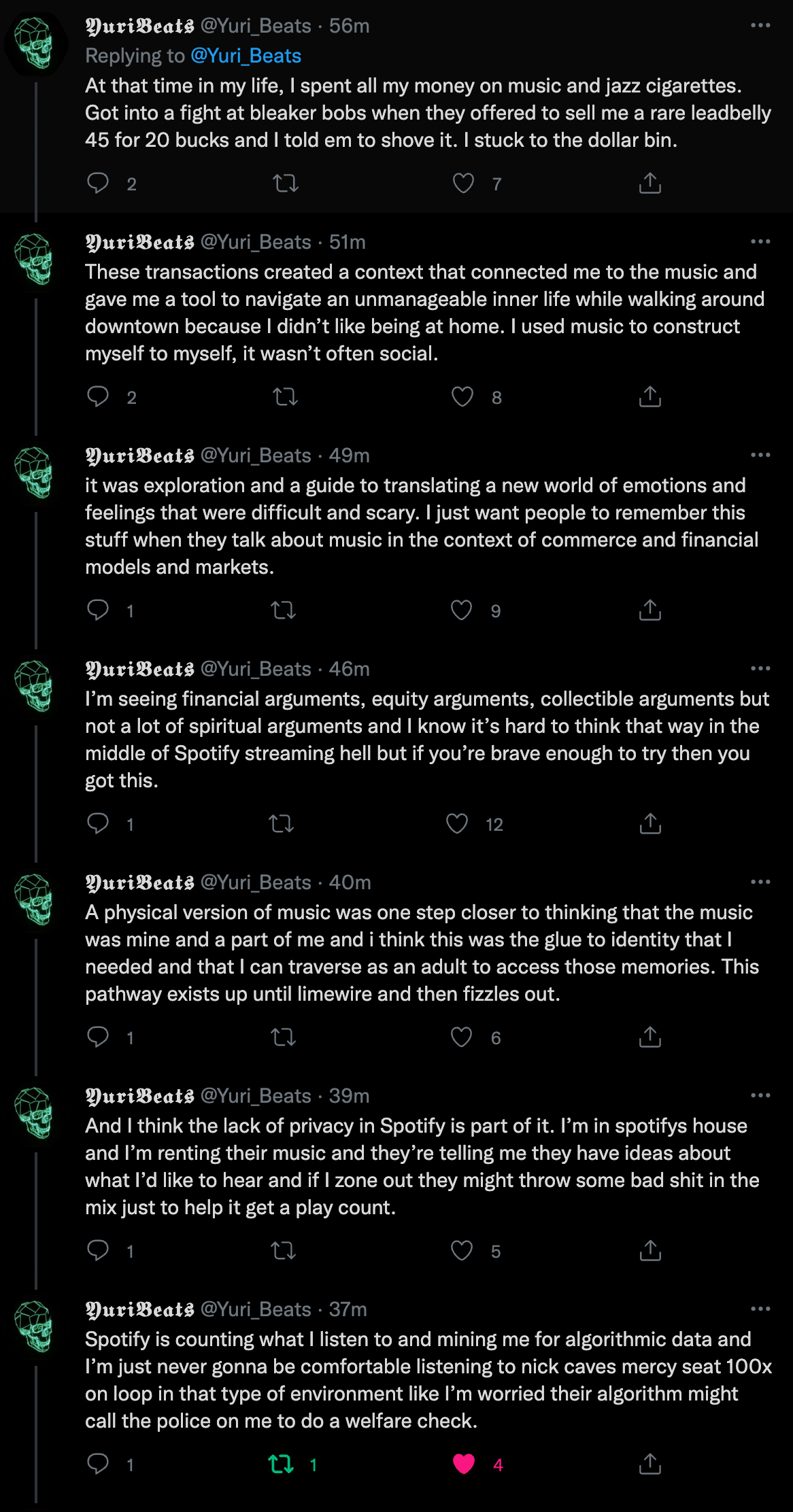
@Yuri_Beats, on Twitter:
At that time in my life, I spent all my money on music and jazz cigarettes. Got into a fight at bleaker bobs when they offered to sell me a rare leadbelly 45 for 20 bucks and I told em to shove it. I stuck to the dollar bin.
These transactions created a context that connected me to the music and gave me a tool to navigate an unmanageable inner life while walking around downtown because I didn’t like being at home. I used music to construct myself to myself, it wasn’t often social.
it was exploration and a guide to translating a new world of emotions and feelings that were difficult and scary. I just want people to remember this stuff when they talk about music in the context of commerce and financial models and markets.
I’m seeing financial arguments, equity arguments, collectible arguments but not a lot of spiritual arguments and I know it’s hard to think that way in the middle of Spotify streaming hell but if you’re brave enough to try then you got this.
A physical version of music was one step closer to thinking that the music was mine and a part of me and i think this was the glue to identity that I needed and that I can traverse as an adult to access those memories. This pathway exists up until limewire and then fizzles out.
And I think the lack of privacy in Spotify is part of it. I’m in spotifys house and I’m renting their music and they’re telling me they have ideas about what I’d like to hear and if I zone out they might throw some bad shit in the mix just to help it get a play count.
Spotify is counting what I listen to and mining me for algorithmic data and I’m just never gonna be comfortable listening to nick caves mercy seat 100x on loop in that type of environment like I’m worried their algorithm might call the police on me to do a welfare check.
